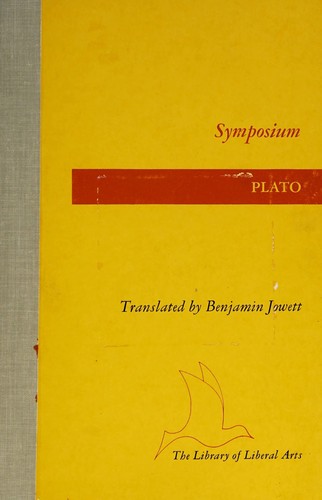Paperback
English language
Published by Bobbs-Merrill Company, Inc..

Paperback
English language
Published by Bobbs-Merrill Company, Inc..
One of the most famous works of literature in the Western world, Plato's Symposium is also one of the most entertaining. The scene is a dinner party in Athens in 416 B.C. at which the guests - including the comic poet Aristophanes and Plato's mentor, Socrates - playfully discuss the nature of eros, or love. By turns earthly and sublime, the dialogue culminates with Socrates's famous account of the "ladder of love," an extended analysis of the many forms of eros.
The evening ends with a speech by the drunken Alcibiades, the most popular and powerful Athenian of the day, who insists on praising Socrates rather than love, offering up a brilliant character sketch of the enigmatic philosopher.
This Modern Library edition is the authoritative translation by Benjamin Jowett, substantially revised by Dr. Hayden Pelliccia, associate professor of classics at Cornell University. This revised translation takes into account advances in …
One of the most famous works of literature in the Western world, Plato's Symposium is also one of the most entertaining. The scene is a dinner party in Athens in 416 B.C. at which the guests - including the comic poet Aristophanes and Plato's mentor, Socrates - playfully discuss the nature of eros, or love. By turns earthly and sublime, the dialogue culminates with Socrates's famous account of the "ladder of love," an extended analysis of the many forms of eros.
The evening ends with a speech by the drunken Alcibiades, the most popular and powerful Athenian of the day, who insists on praising Socrates rather than love, offering up a brilliant character sketch of the enigmatic philosopher.
This Modern Library edition is the authoritative translation by Benjamin Jowett, substantially revised by Dr. Hayden Pelliccia, associate professor of classics at Cornell University. This revised translation takes into account advances in scholarship since Jowett's day and modernizes the Victorian English where it is coy or archaic. The result is a translation neither too colloquial nor too literal, one that is faithful to both Jowett's superb prose and Plato's matchless original.